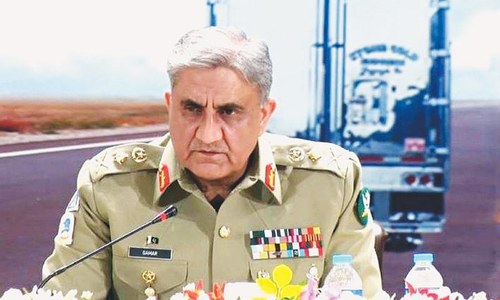WASHINGTON: The downing of two Indian Air Force (IAF) fighter jets this week persuaded the United States to re-engage Pakistan for ending a dangerous confrontation between South Asia’s two nuclear-armed states, said a former White House official.
“After the Pakistani military shot down two Indian Air Force planes and captured an Indian pilot, the United States walked back its rhetoric of self-defence,” said Shamila N. Chaudhary, who was director for Afghanistan and Pakistan at the White House National Security Council under President Barack Obama.
She was referring to a recent statement by US National Security Adviser John Bolton who said after the Feb 14 suicide attack in Pulwama that the United States “support(s) India’s right to self-defence”.
In a piece she wrote for a congressional newspaper, The Hill, she noted that after Pakistan brought down the IAF planes US Secretary of State Mike Pompeo urged both countries “to exercise restraint, and avoid escalation at any cost”.
Later, several US lawmakers backed Mr Pompeo’s appeal to India and Pakistan to defuse the situation. “Pakistan’s repatriation of Wing Commander Abhinandan to India is a good first step toward enabling meaningful dialogue to resolve this conflict,” said Congressman Eliot L. Engel, chairman of the House Committee on Foreign Affairs.
Senator Bob Menendez, the top Democrat on the Senate Foreign Relations Committee, called upon the Trump administration to play an active role to “promote peace and stability in South Asia” following the flare-up in tensions between India and Pakistan.
He reminded the present administration that “past Republican and Democratic administrations have played constructive roles at the highest levels to promote peace and stability in South Asia”.
Congressman Engel said that to avoid the kind of miscalculation Prime Minister Imran Khan “rightly fears, Pakistani leaders must take demonstrable action against Jaish-e-Mohammad....”
Underlining the threat of further escalation, Senator Menendez said: “I urge Islamabad and New Delhi to immediately engage in dialogue to de-escalate the tensions.”
On Thursday, Secretary Pompeo told journalists that he “spent a good deal of time” talking to Pakistani and Indian leaders, “encouraging each country to not take any action that would escalate and create increased risk”.
Various US media outlets reported on Friday that Washington was maintaining regular contacts with both Islamabad and New Delhi and the US military was backing these peace efforts. However, Alyssa Ayres, a former US deputy assistant secretary of state for South Asia, told the National Public Radio that the United States did not have the same influence that it did during the Kargil crisis, when Pakistan was still a close ally.
“I don’t think the United States has the type of clout it might’ve had 35 years ago. But you have seen a consensus among the powers around the world all echoing each other to create that kind of echo chamber about the kind of actions Pakistan should take,” she said.
Cameron Munter, a former US ambassador to Pakistan, told CNBC that India and Pakistan needed to work on two crucial problems: large military deployments in India-held Kashmir and the presence of militant groups in Pakistan.
Published in Dawn, March 2nd, 2019















































